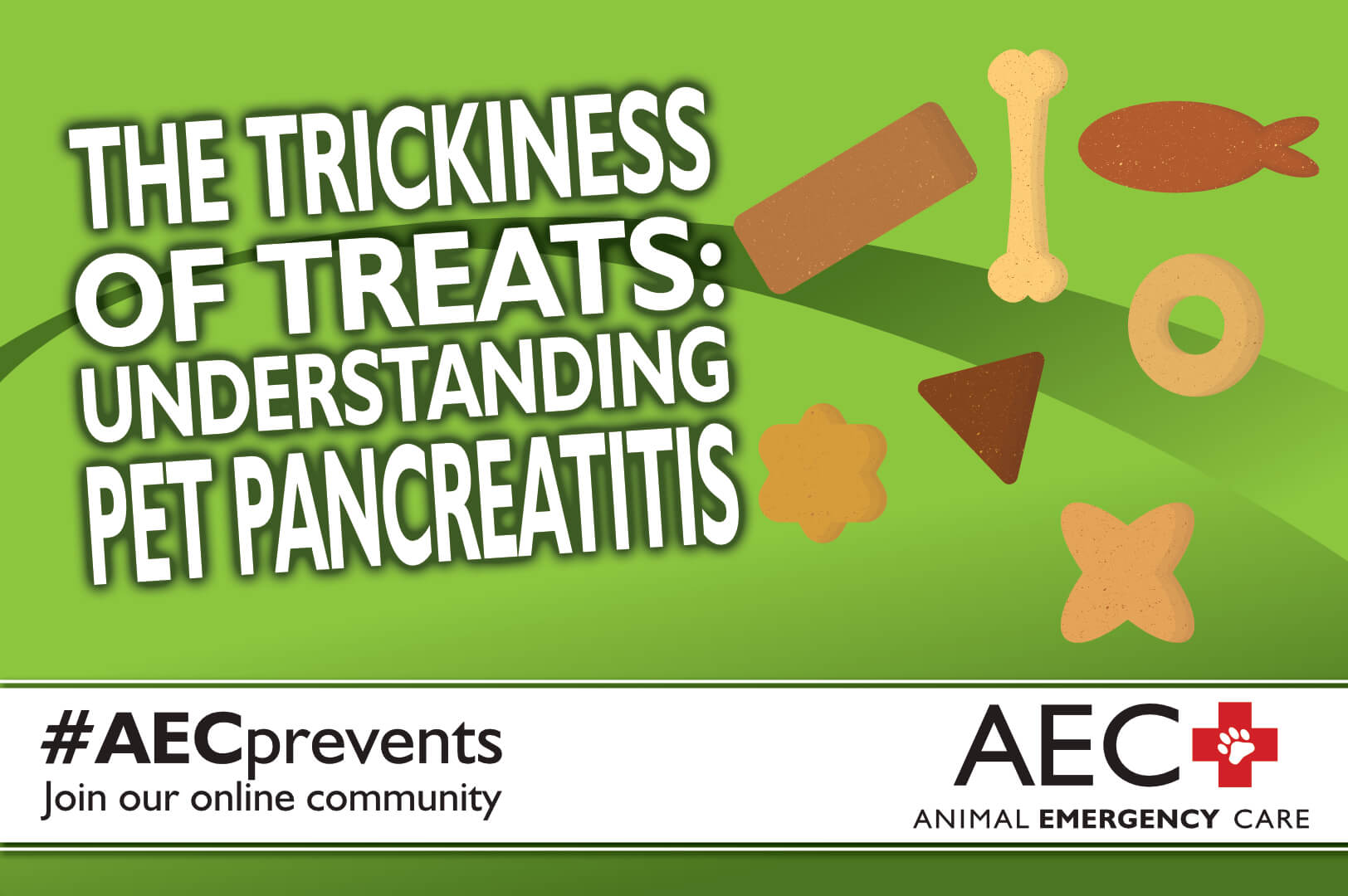Seasonal sweets and treats are upon us and as the temperatures drop, a wide selection of holiday foods appears to celebrate the holiday season. Many pet owners want to ensure their four-legged companions are included in family celebrations. It is not uncommon for pets to have Halloween costumes, festive collars, or celebratory snacks or meals. However, sharing a small amount of a rich or fatty food with your pet can have devastating consequences for their health. Our Animal Emergency Care team wants to ensure you and your pet have a merry and bright holiday season, and we describe pancreatitis signs, treatment, and prevention.
What is pancreatitis in pets?
The pancreas is a small glandular organ located below the stomach that produces the hormones insulin and glucagon. The pancreas also secretes digestive enzymes that are essential to break down nutrients in the small intestine.
A disruption in normal pancreatic function can result in pancreatitis, a painful and potentially life-threatening inflammatory condition that is common in dogs and cats. Abnormal release and activation of digestive enzymes like lipase can lead to pancreatic inflammation, tissue damage, toxin release, and damage to other organs such as the liver. Additionally, pets with pancreatitis have an increased risk for developing diabetes, abnormal bleeding or clotting problems, and brain damage.
In some cases, there is no definitive cause for pancreatitis in pets. Breeds such as miniature schnauzers, cocker spaniels, dachshunds, and Yorkshire terriers also have an increased risk of developing pancreatitis. However, feeding your dog a rich, fatty meal or treat is the most common culprit. It is unknown if ingesting a fatty meal can cause pancreatitis in cats because more than 95 percent of cat pancreatitis cases have no identifiable underlying cause. Numerous pancreatitis risk factors exist for cats and dogs, including:
- Trauma to the pancreas
- Pancreatic tumors
- Hormonal imbalances (i.e., hypothyroidism, diabetes)
- Insecticide exposure (i.e., organophosphate)
- Certain medications (i.e., chemotherapy agents, sulfa drugs)
- Irritable bowel disease in cats
- Toxoplasmosis in cats
- Feline distemper infection
Pancreatitis signs in pets
Signs of pancreatitis vary in pets and depend on the underlying cause and duration. Many affected cats will not show any obvious disease signs, and some cats may develop a concurrent fatty liver. Common signs may include:
- Nausea and vomiting
- Diarrhea
- Abdominal pain
- Lethargy
- Weakness
- Decreased appetite
- Weight loss
- Dehydration
- Fever
- Irregular heartbeat
- Low temperature in cats
- Yellow skin in cats
Pancreatitis diagnosis and treatment in pets
Bring your pet in for immediate veterinary care if they have pancreatitis signs. Pancreatitis is painful to pets and can be deadly without treatment. Diagnosing pancreatitis can be challenging because it is not uncommon for multiple organ systems to be affected, and signs often mimic other diseases. Tell your veterinarian if your pet has had access to the garbage, a new treat, or any human food. Diagnostic testing may include a complete blood count and serum biochemistry test to check for systemic inflammation and overall organ function and to rule out underlying medical problems. Specialized blood tests to measure pancreatic enzyme levels also may be recommended. Other diagnostics may include advanced imaging such as an ultrasound or X-ray to examine the size, shape, and function of the pancreas.
In most cases, pets with pancreatitis will require a long-term hospitalization for stabilization and treatment. Fortunately, most pets who receive aggressive care and who do not have underlying medical conditions will recover. Treatments may include:
- Blood pressure, heart rate, and body temperature monitoring
- Intravenous fluids for dehydration, electrolyte imbalances, and pancreatic support
- Pain medication
- Anti-nausea medication
- Gastroprotectant medications
- Antibiotics
- B12 vitamin injections
- Specialized diet
Financial options for your pet’s pancreatitis treatment
Pets undergoing pancreatitis treatment may require an extended hospital stay and several checkups, which can be expensive. Purchasing a pet health insurance plan like Trupanion when your pet is young will ensure funds are available for their emergency care. Trupanion can pay your veterinary clinic directly, which eliminates the need to submit paperwork and wait for reimbursements. Other financial options available to cover treatment costs include:
- Care Credit
- Scratch Pay
- Pet health savings account
- Short-term loans
Pancreatitis prevention in pets
Pancreatitis is not always preventable because the underlying cause cannot always be determined. However, you can decrease your pet’s risk by:
- Not feeding them any people food, especially rich, fatty food
- Providing them with a complete and balanced diet, including pet-safe treats
- Bringing them in for yearly or more frequent veterinary visits to identify any underlying diseases and pancreatitis risks
- Not changing their diet without consulting your family veterinarian
- Helping them maintain a healthy weight
Call your family veterinarian right away if your pet has pancreatitis signs. If you need help after hours, contact Animal Emergency Care and bring your pet in for immediate treatment. #AECprevents
Sources:
https://veterinarypartner.vin.com/default.aspx?pid=19239&id=4952412
https://veterinarypartner.vin.com/default.aspx?pid=19239&id=4951457
https://www.merckvetmanual.com/digestive-system/the-exocrine-pancreas/pancreatitis-in-dogs-and-cats
https://www.aaha.org/your-pet/pet-owner-education/ask-aaha/Pancreatitis-in-Pets


